The Catch-22 inherent in addressing New Zealand’s rampant judicial activism
New Zealand’s Justice Minister Paul Goldsmith has issued a warning. He’s warned that the current Government will legislate “over the top” of Court decisions involving concepts such as tikanga and Treaty of Waitangi obligations, where required for legal clarity.
“Judicial activism” is the term often used to describe what Minister Goldsmith is concerned about - judges ignoring the literal meaning of legislative wording and Parliament’s intentions, and violating established common law principles in favour of…well…making Māori things up, to suit their ideological biases. “Judicial invention” might just be a better term.
I’ve covered this vexed topic in a previous Substack:
WOE BETIDE US WHEN PARLIAMENT’S WORDS NO LONGER MATTER
John McLean
·
19 Jun
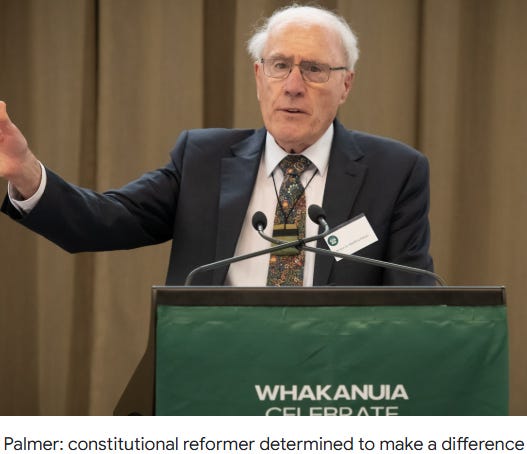
As a child, I believed my grandmother simply started knitting, without an end in mind, and on each occasion an unforeseen woolen item would magically take shape.
Read full story
The latest notable instance of judicial activism is excreta out of a District Court Judge by the name of Lance Rowe. Mongrel Mob patched gang member Andrew Leef plead guilty to a crime under the Gangs Act 2024. Leef’s offence was that he knowingly, and without reasonable excuse, displayed gang insignia, including his black and red Mongrel Mob leather patch on his jacket. On a guilty plea, the Act provides unequivocally that “the gang insignia concerned is [i.e., must automatically be] forfeited to the Crown”.
WOE BETIDE US WHEN PARLIAMENT’S WORDS NO LONGER MATTER
John McLean
·
19 Jun

As a child, I believed my grandmother simply started knitting, without an end in mind, and on each occasion an unforeseen woolen item would magically take shape.
Read full story
The latest notable instance of judicial activism is excreta out of a District Court Judge by the name of Lance Rowe. Mongrel Mob patched gang member Andrew Leef plead guilty to a crime under the Gangs Act 2024. Leef’s offence was that he knowingly, and without reasonable excuse, displayed gang insignia, including his black and red Mongrel Mob leather patch on his jacket. On a guilty plea, the Act provides unequivocally that “the gang insignia concerned is [i.e., must automatically be] forfeited to the Crown”.

Judge Rowe willfully ignored the express legislative requirement for Leef’s patch to be forfeited to the Crown. Instead, Rowe let Leef keep his patch. In doing so, the Judge purported to rely on “tikanga” (Māori customs). His 11 August 2025 decision is not publicly available, but media outlet Stuff possesses the decision and has reported glowingly on it. According to Stuff, Rowe’s decision contains the following antidemocratic obscurantism:
Various commentators have correctly criticized the current tide of judicial activism, including Rowe’s gang patch non-snatch, as infecting New Zealand’s justice system with insidious uncertainty and subverting the democratic will of the elected Parliament, as manifested in legislation.
As predictably as night follows day, the Māori Law Society (Te Hunga Rōia Māori o Aotearoa) has expressed its disagreement with Minister Goldsmith and others agitated about tainted tikanga transfusions into NZ’s judicial blood stream.
“It is now well established that tikanga is part of the common law of New Zealand.”
“While a parallel or alternative criminal justice system based on Tikanga Māori is not available, tikanga can play a meaningful role in criminal proceedings...”
“[Tikanga] may for example inform the value to be ascribed to a particular item [gang insignia] because of its connection to a defendant’s whakapapa or whānau relationships.”
Various commentators have correctly criticized the current tide of judicial activism, including Rowe’s gang patch non-snatch, as infecting New Zealand’s justice system with insidious uncertainty and subverting the democratic will of the elected Parliament, as manifested in legislation.
As predictably as night follows day, the Māori Law Society (Te Hunga Rōia Māori o Aotearoa) has expressed its disagreement with Minister Goldsmith and others agitated about tainted tikanga transfusions into NZ’s judicial blood stream.
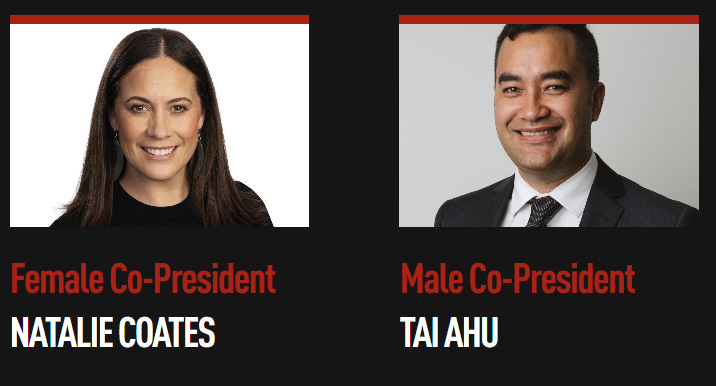
In an opinion piece for LawNews (29 September), co-authors Natalie Coates and Tai Ahu made a series of unsubstantiated and downright false statements (my rebuttals in italics)
- “[Tikanga Māori] is the first law of Aotearoa”. No it’s not. Tikanga fell well short of being “law”. Traditional Māori societies had no legal systems. Tikanga describes traditional Māori customary norms, which varied between Māori groups, and lore (bodies of oral traditions and knowledge).
- “Judicial recognition of tikanga has been careful, principled and incremental.” Incorrect. By contrast with the incremental development of common law, New Zealand Courts have fallen over themselves to infuse their decisions with tikanga. Rogue Woke Rowe, in his gang insignia repatriation decision, returned Mobster Leef’s gang patch while acknowledging that gangs “are not a product of te ao Māori [the invented, unitary “Māori world view], the source of tikanga”. Judges are importing amorphous notions of “tikanga”, simply to pursue and entrench their fanatical adherence to neo-Marxist, post-modernist Critical Race and other Critical Social Justice Theories.
- “We instead affirm that recognising tikanga strengthens our legal system, enriches our jurisprudence and reflects the treaty partnership at the heart of Aotearoa. In short, the recognition of tikanga strengths the rule of law.” The alleged “treaty partnership” is an invention of the Courts and Waitangi Tribunal, completely without foundation in the Treaty of Waitangi or legislation. By undermining legal certainty in Court decisions, the tikanga infusion undermines the rule of law. Tikanga “jurisprudence” is a gold mine for lawyers, but a draining dystopian nightmare for ordinary citizens.
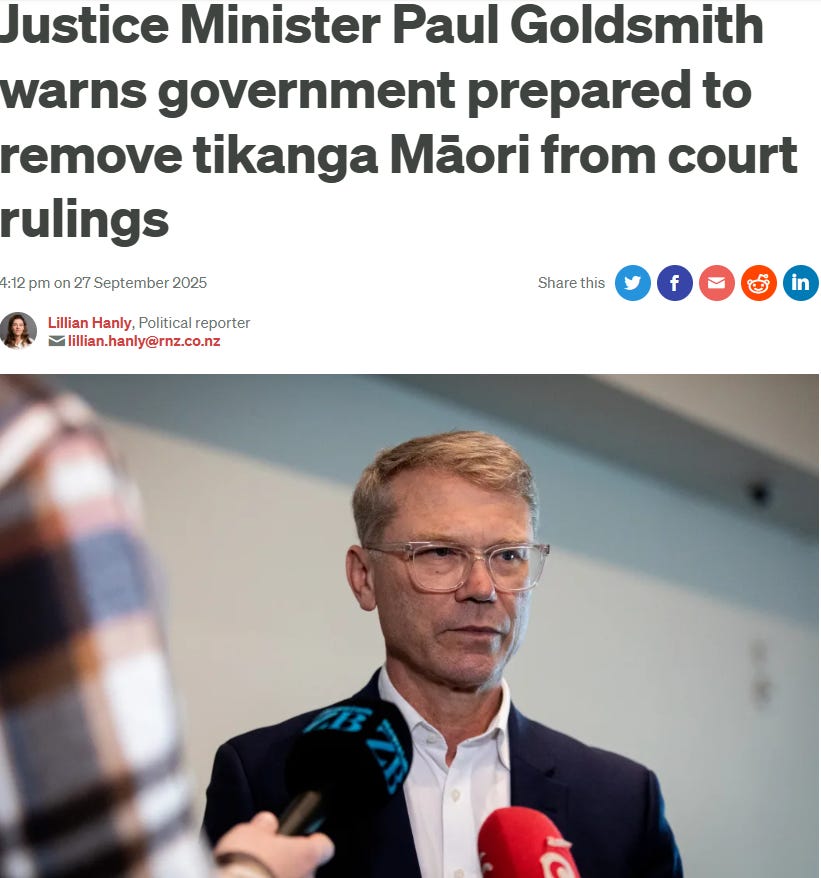
There’s a monstrous Taniwha lurking in the murky waters of judicial tikanga, a creature that Minister Goldsmith can’t seem to see. The Catch-22 Catfish is that the conceit of Judges ignoring the clear meanings of words, and importing tikanga into New Zealand’s common law, can’t be cured by passing “remedial” legislation…because the Judges will simply ignore the words of remedial legislation and continue to inject their decisions with tenuous tenets of tikanga.
Which all begs one Big Question – what can be done about subversive Judges who are hijacking and sabotaging New Zealand’s justice system? Unfortunately, the answer is (as things stand)… very little.
The primary way to challenge a bad Court decision is to appeal the decision to a higher court. But in the context of intravenous tikanga, the higher the Court, the more likely the Court will favour tikanga’s tentacles. So, most likely, no joy there.
Judicial review of Court decisions is only available where the process that produced the decision is flawed (e.g., procedurally unfair or outside of the judge’s powers). Judicial review is not concerned with outcomes. So likewise, judicial review offers no practical avenue to address judicial activism.
In the same vein, complaints to the Judicial Conduct Commissioner about a judge’s behaviour or ethics can’t relate to the pure quality of legal decisions. Again therefore, the Judicial Conduct Commissioner is no lane to lance boils like Judge Lance Rowe.
Court decisions are generally published and are therefore theoretically open to public criticism. But lawyers who criticize judges do so at their peril. The Lawyers and Conveyancers Act (Lawyers: Conduct and Client Care) Rules 2008 requires lawyers to act with respect and courtesy towards judges and to avoid conduct that undermines public confidence in the legal system or the integrity of the judiciary. (You may well argue that judges don’t need any help to undermine public confidence in the legal system; they’re achieving that all by themselves.) But more pertinently, compelled respect and courtesy towards judges is weaponizable to stifle and censor legitimate criticism of judges who are inept, or worse.
Which leaves it to politicians and the media to identify and criticize judges who are trying to Tikangaize and Treatyize New Zealand’s judicial system.
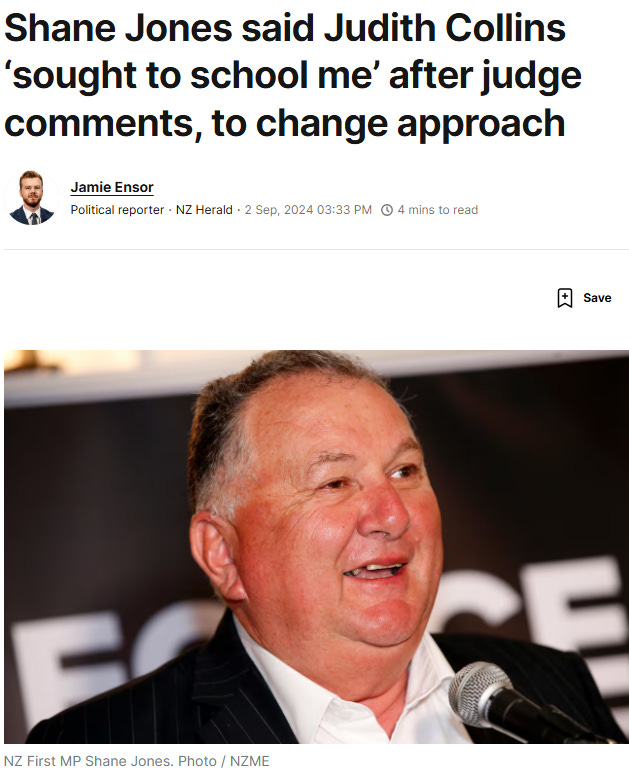
NZ First Party MP Shane Jones has been repeatedly warned and rebuked for criticizing Wokester Judges. The New Zealand Bar Association is a serial snitcher to Attorney-General Judith Collins, who has admonished Jones on multiple occasions. The judiciary is cry bullying, undermining Parliamentary sovereignty with their decisions and then claiming that elected political critics such as Jones are breaching the constitutional principle of “comity” — compelled civility that is supposed to help ensure respectful separation of powers between Parliament, the executive, and the judiciary.
At the risk of stating that obvious, judges like Lance Rowe know full well they’re ignoring the clear wording of statutes and the will of New Zealand’s democratically elected Parliament. These are deliberate infractions of commission, not mere incompetence.
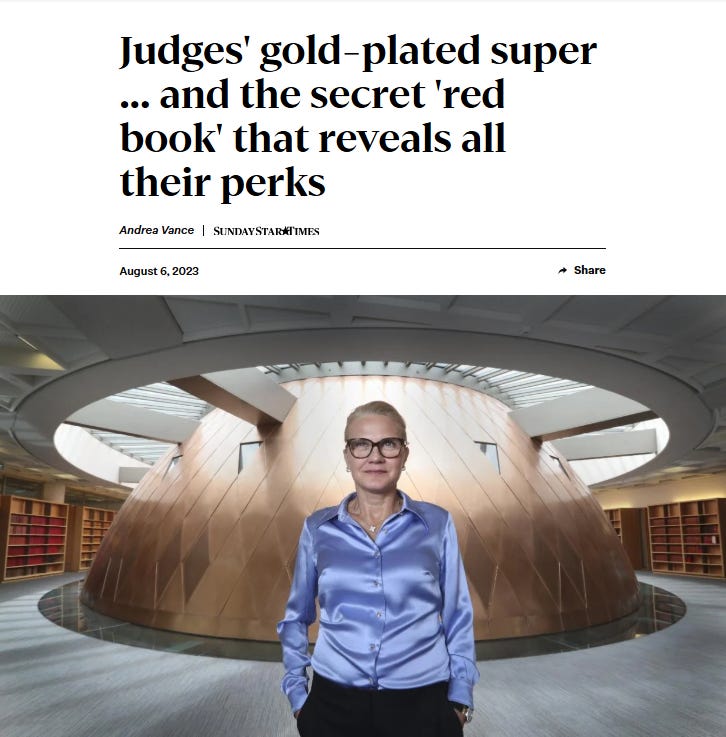
District Court judges (the “lowest” judges) currently earn about $400,000 annually. And under their retirement scheme, the Government pays a superannuation subsidy of up to 37.5% of the judge’s salary. For every $1 that a judge contributes, the Government contributes $7.50. So, in order to trigger the Government’s maximum contribution of about $148,000 annually, a judge must therefore contribute just under $20,000 annually. It’s an astonishingly generous retirement scheme. With KiwiSaver on top. And no New Zealand judge has ever lost their superannuation entitlements, no matter how biased or incompetent.
For all real-world purposes, judges can decide their cases in whatever politically partisan and ideologically driven ways they like, without any risk of adverse consequences.
Even bad Judgy behaviour outside of Court is virtually impervious to punishment.
NEW ZEALAND JUDICIARY CONTINUES TO CIRCLE THE WAGONS
John McLean
·
2 Mar
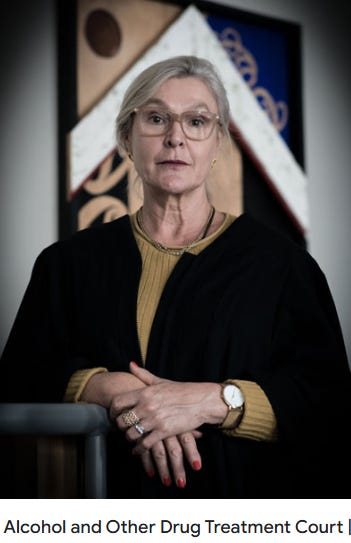
In November 2024, District Court Judge “Ema” Aitken, her former-doctor husband David Galler and King’s Counsel Michael Reed KC gate-crashed a private function at Auckland city’s Northern Club. The function was a Christmas get together of the New Zealand First political party. Aitken’s real name is Elizabeth Margaret Aitken. “Ema” appears to be a truncat…
Read full story
It was not until July 2025 that a Judicial Conduct Panel was convened to investigate the alcohol-fueled antics of District Court Judge Ema Aitken. In November 2024, Aitken blurted politically partisan barbs at Winston Peters and other New Zealand First members, at Auckland’s private Northern Club.
It appears the Panel is not expected to provide its recommendations to the Attorney-General until Easter 2026, at the earliest. And we shouldn’t expect the A-G to berate or otherwise punish Aitken for her infantile tirade. Repercussions are a foreign concept, in the cloistered world of New Zealand’s judiciary.
Now all the judges, in their coats and their ties
Are free to drink Martinis, and watch their loot rise…
John McLean is a citizen typist and enthusiastic amateur who blogs at John's Substack where this article was sourced.


10 comments:
Oh spare us the histrionics John! Someone making a decision based on the principles of law isn’t an activist, they’re doing their job. If you can’t understand how the different branches of government work, that’s on you. Have a cuppa tea and a lie down and maybe find a cat or a dog to pat, or a person to hug.
I don't know what planet you are on, Anon !
Excellent article, John.
You have vividly exposed the activities of these activist judges who seem to delight in tearing our nation to pieces.
See my comments above on the "white ants" rotting our country from the inside out.
I have read these incredible decisions now for some years, and have realized that some judges believe they are above the law, that only they should be be determining the future of NZ.
Lance Rowe named and shamed as one of our worst ever judges.
I wonder what he was like as a child ?
Anon@8.30 you are so far wide of the mark it doesn't deserve further comment other than - you take a lie down and don't bother coming back anytime soon. You wouldn't know the principles of law if they hit you in your unprincipled face.
After a careful read of what John wrote I can only agree with Doug Longmire and, in fact wonder if Anon @ 8.30 actually read anything before their knee-jerk response.
1993 Te Ture Whenua Maori/Maori Land Act
Tikanga mentioned 48 times. Section 5 states that this Act binds the Crown, meaning parliament and courts.
https://www.legislation.govt.nz/act/public/1993/0004/latest/resultsin.aspx?search=sw_096be8ed81dfa7fc_tikanga_25_se&p=1
Repeal!
LOL Maori law society with co-Presidents of each sex. I wonder if I could set up a Manuhiri Pakeha tikanga society with male and female and other identifiers as co-tumuwhakarae and establish and Aunty-tanga reverence society and the church of Protestant Mataraungi Maori? Maybe then the MSN will come and seek and quote authoratively my ideological soundbites on all things Maori. I will have to wait until Maori back up their partnership words with compulsory appointing wholly non-Maori to every iwi decision making structure.
Then the 1993 Māori Land Act is an example of poor law-making. Outside of a marae tikanga has no relevance. A govt governs for all, without prejudice.
Post a Comment
Thank you for joining the discussion. Breaking Views welcomes respectful contributions that enrich the debate. Please ensure your comments are not defamatory, derogatory or disruptive. We appreciate your cooperation.